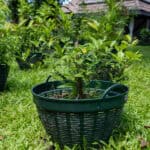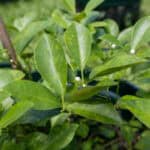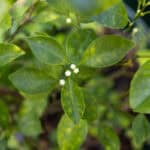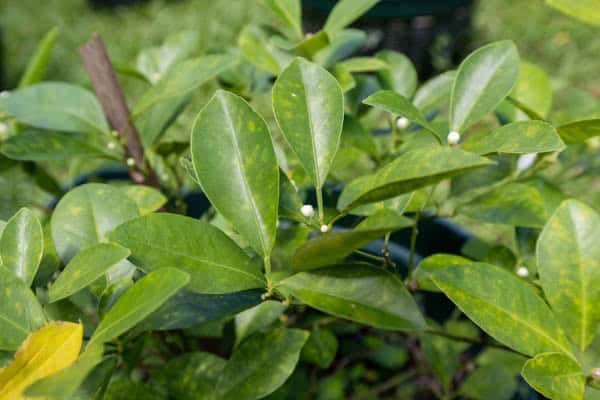แก้ว (Kaew)
Family: Rutaceae
Murraya paniculata is an evergreen shrub or small tree widely admired for its glossy leaves and clusters of small, white, intensely fragrant flowers. Native to South and Southeast Asia, the species is commonly grown in temple gardens and traditional Thai homes as both a decorative and medicinal plant. Its aroma resembles that of citrus blossom, and its dense foliage makes it suitable for hedges and courtyard plantings.
Botanical Characteristics
The plant typically grows between 2 and 4 meters in height. Leaves are pinnate with oval, glossy green leaflets that emit a mild citrus scent when crushed. Flowers are white, waxy, and borne in small clusters, followed by small red to orange berries that attract birds. The shrub prefers bright light and well-drained soil and is tolerant of regular pruning, making it a classic component of Thai herbal and ornamental landscapes.
Use in Thai Traditional Medicine
In Thai traditional medicine, แก้ว (Kaew) is known for its cooling and pain-relieving properties. The leaves and roots are used in decoctions to alleviate inflammation, toothache, and mild fever. The bark and root extracts are sometimes applied externally to soothe muscular pain and swelling. Its fragrance is also believed to uplift mood and calm the nervous system, linking physical healing with emotional balance.
Cultivation Notes
Murraya paniculata grows best in warm, humid conditions with full to partial sunlight. It can be propagated easily from cuttings or seeds. Regular pruning after flowering encourages bushy growth and enhances the plant’s natural shape. In the KBE Thai Medicinal Herb Garden, it represents a bridge between practical herbalism and aesthetic landscape design.
Historical Context
Historically, Murraya paniculata has been noted in Ayurvedic, Chinese, and Thai pharmacopeias for centuries. It was valued as a household remedy and planted near homes for its protective symbolism—its name, Kaew, meaning “crystal,” is associated with purity and good fortune in Thai culture.
Disclaimer: This information is provided for educational and historical purposes only. It is not intended as medical advice. Always consult a qualified healthcare professional before using any herbal preparation.




